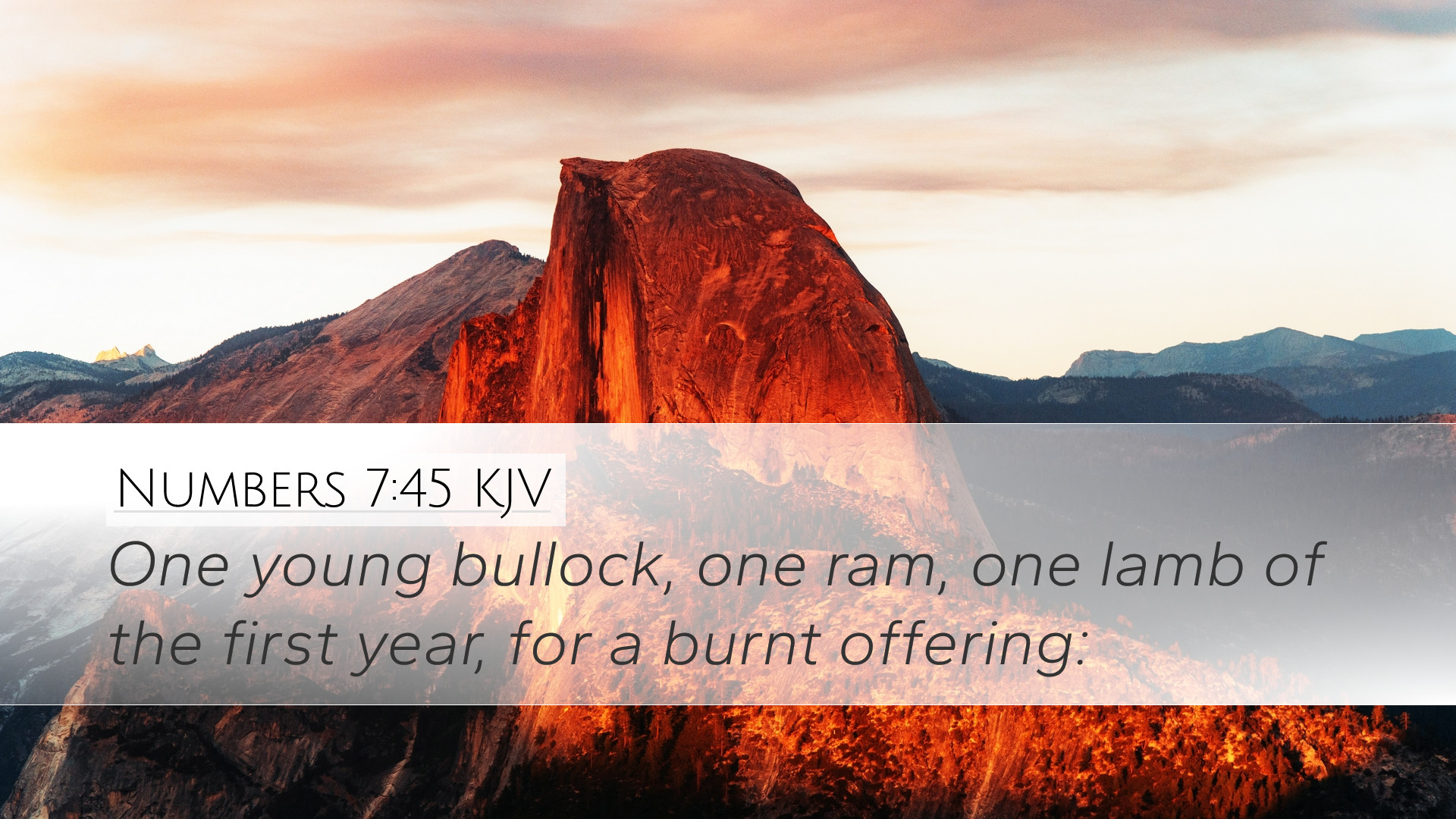Commentary on Numbers 7:45
Verse Reference: Numbers 7:45 - "From the tribe of the children of Dan, Ahiezer the son of Ammishaddai."
This verse is a small yet significant part of the detailed accounts found in the Book of Numbers, specifically during the time of the Israelites' wilderness journey following their exit from Egypt. The meticulousness with which these accounts are recorded illustrates the importance of structure and order in God's community. Thus, this commentary aims to provide profound insights and implications from this verse, incorporating perspectives from established public domain commentaries.
Overview of the Context
The Book of Numbers not only serves to document the journey of the Israelites but also emphasizes the organization and roles within the Israelite camp. With several tribes represented, the gathering of leaders and their appointments for various tasks symbolizes God’s divine order among His people.
Insights from Matthew Henry
Matthew Henry notes that this verse highlights the representation of the tribe of Dan, which would not be the most prominent tribe among the Israelites. Henry emphasizes that despite the lack of recognition, the appointment of leaders such as Ahiezer showcases that each tribe holds intrinsic value and has a purpose in God's plan. The mention of individual leaders in these verses underscores God’s recognition of each family's contribution to the overall mission.
Divine Order
Henry further expounds on the theme of divine order manifested in the organization of the tribes. Each appointed leader stands as an acknowledgment of leadership's collective responsibility towards the nation. Ahiezer, as representative of Dan, signifies that irrespective of a tribe's status in the eyes of the world, God’s calling extends to all parts of His people.
Insights from Albert Barnes
Albert Barnes focuses on the significance of tribal leadership within the context of the Israelite community. He notes that the inclusion of Ahiezer from the tribe of Dan reflects God’s intent to maintain unity among the tribes. Barnes observes that tribal representation signifies a broader theological principle: that every individual and group, regardless of position, contributes to the whole body of the community of believers.
Understanding Leadership
Barnes also emphasizes the importance of chosen leaders like Ahiezer, who not only lead but also represent their constituents’ needs and spiritual journeys. This calls attention to the responsibilities of pastoral leaders today, echoing the sentiments of accountability and representation before God and the wider community of faith.
Insights from Adam Clarke
Adam Clarke, on the other hand, highlights the heritage and lineage associated with this appointment. He notes that Ahiezer's name means "my brother is a help," which suggests a relational dimension to leadership and the divine support granted to individuals in positions of authority. Clarke infers that this reflects the essence of community and collaboration as crucial aspects of leadership in the Israelites' camp.
The Role of Community
Clarke urges readers to see the crucial role of communal support in ministry. Leaders do not operate in a vacuum; rather, they thrive in an environment where partnership and unity are prioritized. Ahiezer’s leadership quality, embodied by his name, reminds contemporary Christians of the importance of mutual support within their communities, as they navigate spiritual journeys together.
Thematic Implications
This seemingly straightforward verse opens up significant theological implications. The divine appointment of tribal leaders like Ahiezer extols God’s sovereignty over His people and highlights His purpose within the organized community of faith. It emphasizes that every person has a role to play and a contribution to make toward His mission.
- Tribal Leadership and Community: The selection of each leader, regardless of their tribe's prominence, shows God’s view of equality in service.
- Significance of Names: Names in the Bible often carry deep meaning and insight into the individual's divine purpose.
- Collective Responsibility: Each leader represents not just themselves but their tribe, illustrating the weight of community responsibility in spiritual leadership.
- Divine Order and Sovereignty: God’s plans are often executed through structured, appointed leadership, reflecting His sovereign will in the order of His people.
Conclusion
In summary, Numbers 7:45, while succinct, encapsulates profound truths about God's design for leadership, community, and the collective identity of His people. Ahiezer of Dan exemplifies the critical roles that emerge from divine calling, addressing issues of representation, collaboration, and divine sovereignty. For pastors, students, theologians, and scholars, this passage invites reflection on contemporary practices of leadership and community within the body of Christ, urging a return to the essence of humility, service, and accountability imbued in spiritual stewardship.


